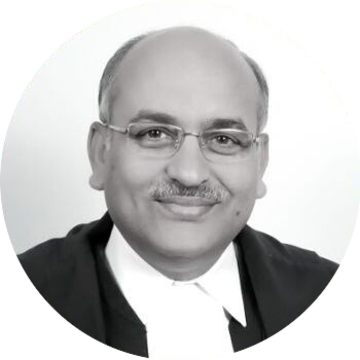Supreme Court: In a civil appeal against a decision of the Karnataka High Court, whereby the respondent’s petition under Article 227 of the Constitution of India was allowed and set aside the order of the Additional Senior Judge-III, wherein, the respondent was directed to pay the deficit stamp duty, along with the penalty, as required for a power of attorney under Article 41(eb) of the Schedule to the Karnataka Stamp Act, 1957, the Division Bench of Dipankar Datta* and Pankaj Mithal, JJ. allowed the appeal and restored the Trial Court’s decision. The Bench appreciated that the Trial Court passed an order in exercise of its inherent power saved by Section 151 of the Code of Civil Procedure, 1908 (‘CPC’), to do justice as well as to prevent abuse of the process of Court.
Factual Matrix
A sale deed was executed on 03-10-2003 by respondent’s husband in her favour, on the strength of a General Power of Attorney (‘GPA’) dated 16-09-2003 allegedly executed by A in favour of respondent’s husband in respect of the suit property, authorizing him with power to sell the suit property. An agreement to sell the suit property was executed between the appellant and A on 11-09-2003. Consideration was paid by the appellant, and a sale deed was executed on 8-11-2003 between the appellant and A.
The appellant instituted a civil suit against the respondent, her husband, and A, seeking a declaration that the sale deed dated 3-10-2003 was null and void, and not binding on the appellant. Conversely, the respondent also instituted a civil suit against the appellant and A, seeking a declaration that the sale deed dated 8-10-2003 was null and void, and not binding on the respondent. The appellant preferred interlocutory applications and prayed that the GPA be impounded on the ground that it was insufficiently stamped. The Trial Court allowed the I.A.s and directed the respondent to pay the deficit stamp duty, along with the penalty, as required for a power of attorney under Article 41(eb) of the Schedule to the Karnataka Stamp Act, 1957 (‘1957 Act’). The High Court, vide impugned decision set aside the Trial Court’s decision and said that in the normal procedure when the document is produced, it is marked, and exhibit number is assigned and beneath the said exhibit Judge puts his initial. This procedure fully complies with the requirement under Order 13 Rule 4 of the Act. Therefore, the High Court said that the document was properly marked.
Question for Consideration
Whether upon admission of an instrument in evidence and its marking as an exhibit by a Court (despite the instrument being insufficiently stamped), such a process can be recalled by the Court in exercise of inherent powers saved by Section 151 of the Code of Civil Procedure, 1908 for the ends of justice or to prevent abuse of the process of the Court.
Decision
The Court said that there was no doubt that the GPA was insufficiently stamped, so it needs to be considered, that which of the two conflicting views taken by the Trial Court and the High Court was right. The Court said that Trial Court did have the authority to revisit and recall the process of admission and marking of the instrument, not in the sense of exercising a power of review under Section 114 read with Order XLVII of the CPC but in exercise of its inherent power saved by Section 151 thereof, and that the other remedy made available by the 1957 Act was not required to be pursued by the appellant to fasten the respondent with the liability to pay the deficit duty and penalty.
Perusing Section 35 of the 1957 Act, the Court said that that once an instrument is admitted in evidence, then its admissibility cannot be contested at any stage of the proceedings on the ground of it not being duly stamped. Any objection pertaining to the instrument’s insufficient stamping must be raised prior to its admission.
The Court explained that should the presiding officer of the Court find the instrument to be chargeable with duty, but it is either not stamped or is insufficiently stamped, he is bound by Section 33 to impound the same. Section 34 also places a fetter on the Court’s authority to admit an instrument which, though chargeable with duty, is not duly stamped. The statutory mandate is that no such instrument shall be admitted in evidence unless it is duly stamped. The Court is bound to give effect to the mandate of Sections 33 and 34 and retains the authority to impound an instrument even in the absence of any objection from any party to the proceedings. Such an absence of any objection would not clothe the presiding officer of the Court with power to mechanically admit a document that is tendered for admission in evidence. Irrespective of whether objection is raised or not, the question of admissibility has to be decided according to law. The presiding officer of a Court when confronted with the question of admitting an instrument chargeable with duty but which is either not stamped or is insufficiently stamped ought to judicially determine it. Application of judicial mind is a sine qua non having regard to the express language of Sections 33 and 34 and interpretation of pari materia provisions in the Stamp Act, 1899. However, once a decision on the objection is rendered, be it right or wrong, Section 35 would kick in to bar any question being raised as to admissibility of the instrument on the ground that it is not duly stamped at any stage of the proceedings and the party aggrieved by alleged improper admission has to work out its remedy as provided by Section 58 of the 1957 Act.
The Court referred to Javer Chand v. Pukhraj Surana, 1961 SCC OnLine SC 22 wherein, it was held that when a document’s admissibility is questioned due to improper stamping, it must be decided immediately when presented as evidence.
Further, in Ram Rattan v. Bajrang Lal, (1978) 3 SCC 236 it was laid down that “where a document has been inadvertently admitted without the court applying its mind as to the question of admissibility, the instrument could not be said to have been admitted in evidence with a view to attracting Section 36 of the 1899 Act.”
Hence, the Court upon perusal of the Trial Court’s decision, allowing the I.A.s, said that on the date the GPA was admitted in evidence and marked as an exhibit, the Trial Court did not deliberate on its admissibility, much less applied its judicial mind. In the absence of a ‘decision’ on the question of admissibility or, in other words, the Trial Court not having ‘decided’ whether the GPA was sufficiently stamped, Section 35 of the 1957 Act cannot be called in aid by the respondent. For Section 35 to come into operation, the instrument must have been “admitted in evidence” upon a judicial determination, and once there is such a determination, whether the determination is right or wrong cannot be examined except in the manner ordained by Section 35. However, in a case of “no judicial determination”, Section 35 is not attracted.
The Court noted that the Trial Court admitted failure on its part to apply judicial mind coupled with the absence of the counsel for the appellant before it when the GPA was admitted in evidence and marked exhibit, and said that the Trial Court’s order in exercise of its inherent power saved by Section 151 of the CPC, was passed to do justice as well as to prevent abuse of the process of Court, to which inadvertently it became a party by not applying judicial mind as required in terms of Sections 33 and 34 of the 1857 Act.
Thus, allowing the appeal, the Court answered the substantial question in the affirmative and upheld the Trial Court’s order, setting aside the impugned order of the High Court.
The Court observed that the revenue would stand the risk of suffering huge loss if the Courts fail to discharge the duty placed on it per provisions like Section 33 of the 1957 Act. Allowing an instrument with insufficient stamp duty to pass unchallenged, merely due to technicalities, would undermine the legislative intent and the fiscal interests of the state. The courts ought to ensure that compliance with all substantive and procedural requirements of a statute akin to the 1957 Act are adhered to by the interested parties.
CASE DETAILS
|
Citation: Appellants : Respondents : |
Advocates who appeared in this case For Petitioner(s): For Respondent(s): |
CORAM :










